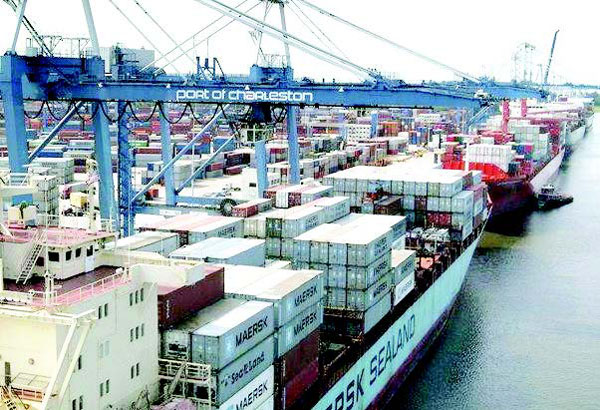APM Terminals Apapa, Nigeria’s largest and busiest container terminal, has temporarily suspended the reception of empty containers following an unexpected spike in import cargo volumes. The decision comes amid growing congestion at the terminal, with yard space stretched to capacity due to the build-up of uncollected empty containers.
According to the terminal operator, the sudden and sustained increase in imports in recent weeks has forced shipping lines to prioritize the discharge of laden containers, leaving behind a backlog of empties. The result is a yard filled with containers awaiting evacuation, making it difficult to accept more without compromising operational efficiency.

Terminal Manager Steen Knudsen explained that while the terminal manages the handling of containers, ownership and responsibility for moving them lies with shipping companies. “Due to a sharp and sustained surge in import cargo volumes in recent weeks, shipping lines have had to prioritize discharging incoming laden containers over evacuating empties. This operational shift has resulted in a growing inventory of empty containers within the terminal, significantly limiting yard space,” he said.
The terminal’s decision to temporarily halt the collection of empty containers is not a result of failure on the part of APM Terminals, Knudsen clarified, but a direct consequence of the imbalance in container traffic caused by shipping lines’ operational priorities. He noted that while the terminal is capable of handling large volumes, the unchecked return of empty containers without timely evacuation creates an unsustainable pressure on available space and logistics resources.
Already, the suspension is having knock-on effects across the port supply chain. Truck operators and freight forwarders are reporting increased delays, with many unable to return empties and therefore unable to pick up new cargo. For importers and logistics firms, this disruption is expected to result in additional demurrage charges, extended waiting times, and a slowdown in overall cargo movement at the port.
APM Terminals has acknowledged these challenges and is working with stakeholders to mitigate the situation. “We are actively engaging with the shipping lines and relevant government authorities to expedite the evacuation of the current stockpile of empty containers,” Knudsen said. “We understand the impact this has on truckers, importers, and other stakeholders, and we’re committed to resolving it quickly.”
Industry experts have pointed out that the ongoing situation reflects broader structural issues in Nigeria’s port logistics ecosystem. With most import activity funneled through Lagos and limited inland infrastructure to support the timely redistribution of cargo, surges like this are bound to create bottlenecks unless long-term planning is introduced. The lack of balance between imports and exports also plays a role in the under-utilization of vessels for evacuating empties.
Stakeholders are now calling for shipping lines to increase the frequency of vessels assigned to evacuate empty containers from Nigerian terminals. There are also renewed calls for enhanced use of inland container depots and the expansion of rail freight services to reduce pressure on ports like Apapa.
Knudsen added that the terminal is not standing still and is using the opportunity to review its internal processes to ensure faster turnaround times once operations normalize. “APM Terminals remains committed to operational excellence. Our team is working round the clock to minimize disruptions and support all our partners through this temporary suspension,” he said.
For now, the terminal will continue to restrict the acceptance of empties until the backlog is significantly reduced. In the meantime, businesses relying on the port for imports and exports are advised to monitor the situation and make adjustments to their logistics plans accordingly.
While no specific date has been given for the lifting of the suspension, APM Terminals has assured port users that updates will be communicated as the situation evolves. The company also reiterated its commitment to transparency, collaboration, and efficient service delivery as it works to restore full operational capacity.
As one of West Africa’s most critical gateways for trade, the state of Apapa Port has significant implications for the national economy. A swift resolution to the current congestion is crucial not just for stakeholders at the port, but for supply chains across the country.
Support InfoStride News' Credible Journalism: Only credible journalism can guarantee a fair, accountable and transparent society, including democracy and government. It involves a lot of efforts and money. We need your support. Click here to Donate
